Theories, Principles and Models in Education and Learning
30 Pages9537 Words180 Views
Added on 2020-12-29
Theories, Principles and Models in Education and Learning
Added on 2020-12-29
ShareRelated Documents
Theories, Principles andModels in Education andTraining
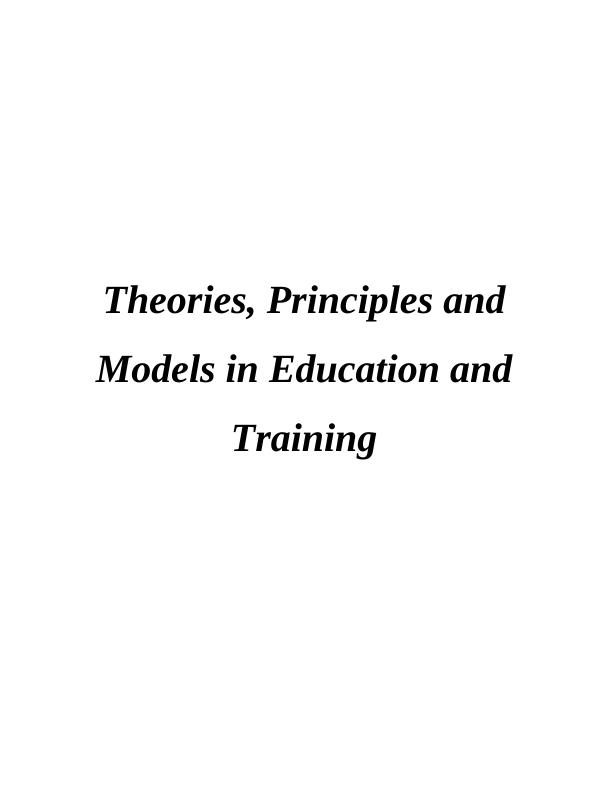
TABLE OF CONTENTSINTRODUCTION:..........................................................................................................................1TASK 1............................................................................................................................................15.1 Analyse theories and models of reflection and evaluation....................................................15.2 Theories and models of reflection can be applied to reviewing own practice......................5TASK 2............................................................................................................................................61.1 Analyse theories, principles and models of learning............................................................61.3 Analyse models of learning preferences...............................................................................91.2 Explain ways in which theories, principles and models of learning can be applied inteaching.....................................................................................................................................101.4 Explain how learning preferences enables inclusive teaching and learning ......................12TASK 3..........................................................................................................................................14A) Covered in PPT....................................................................................................................14B) Explain ways in which theories, principles and models of communication can be applied14TASK 4..........................................................................................................................................153.1 Analyse theories, principles and models of assessment......................................................153.2 Explain ways in which theories, principles and models of assessment can be applied inlearning......................................................................................................................................18TASK 5..........................................................................................................................................194.1 Analysing theories and models of curriculum....................................................................194.2 Applying the theories and models of curriculum................................................................21CONCLUSION:.............................................................................................................................23REFERENCES :............................................................................................................................25
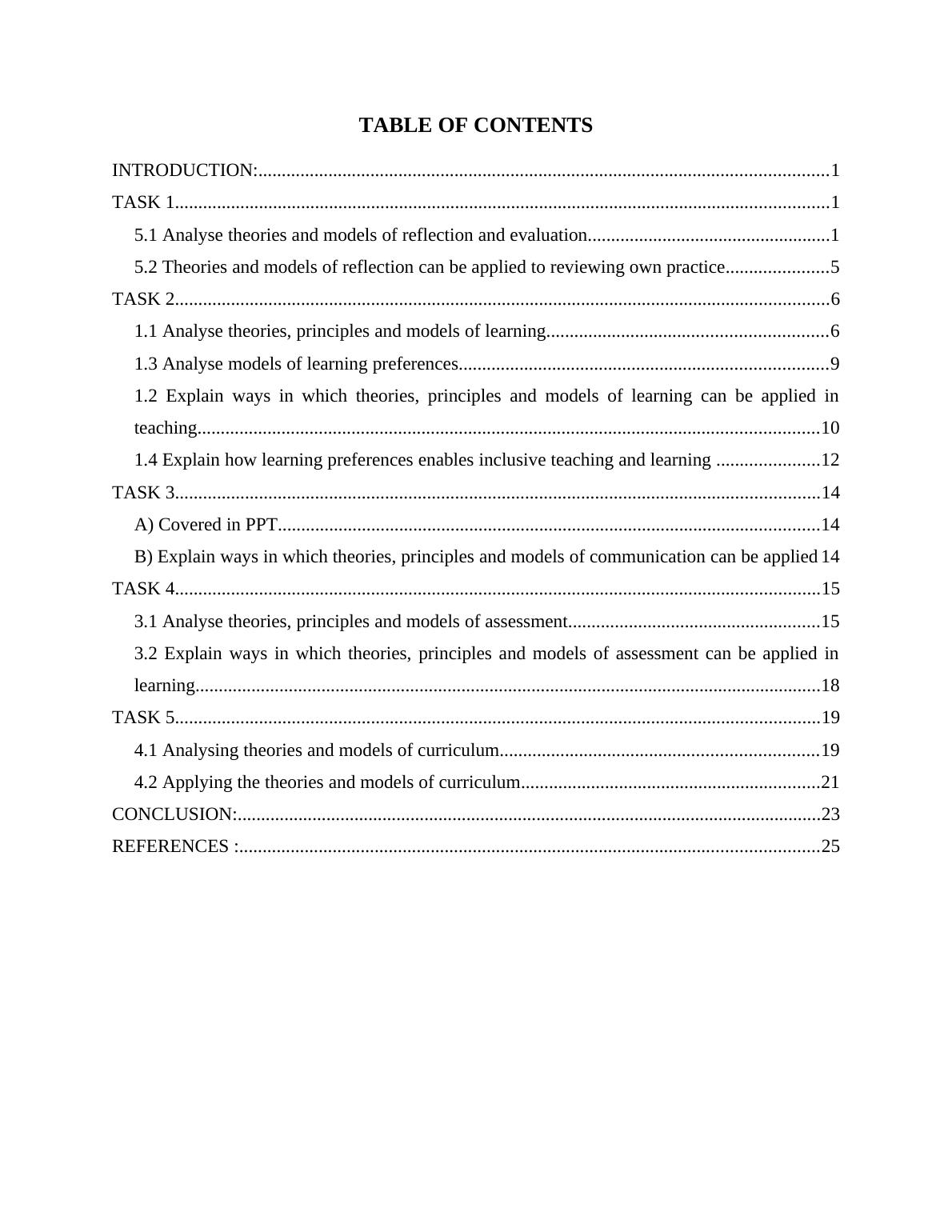
INTRODUCTION:Training and education helps an individual in career development. It allows individuals tolearn and gain knowledge on various subjects. Also, a person can learn own his own by applyingvarious theories. These theories help in evaluating performance on the basis of knowledge andskills (Reece and Walker, 2016) Besides this, education provides basic learning to the person.It shows the way knowledge can be applied in life. Moreover, teacher must do reflection so thatit allows to mentally process, analyse knowledge. This is done so that it can be used to change anoutcome by utilising that knowledge. Along with this, reflection allows teacher to maintainprogress in their teaching. It helps them to become an expert in their field by identifying weakareas and improving them. Reflection is an experience based notion that is based on sometheories and models. This assignment will describe different theories and models of reflectionand the way it can be applied in own practise. Furthermore, it will show theories and models ofcurriculum development and manner in which it can be applied in own area. TASK 15.1 Analyse theories and models of reflection and evaluationIn the recent era, reflective practise has grown in areas such as professional discipline.Each of them is having their own differences and meaning (Richey and Klein, 2014) Thereflection practise helps in making improvement in performance by analysing the strengths andweaknesses. There are different models and theories of reflection that can be taken intoconsideration. It can help an individual in evaluating the performance. These models are asfollows:-Models of reflectionGibbs model of reflectionThis model helps in exploring a person’s behaviour in a particular situation. With this, itenables them to realise what changes can be done in behaviour. It consists of a reflective cyclethat are as follows:-
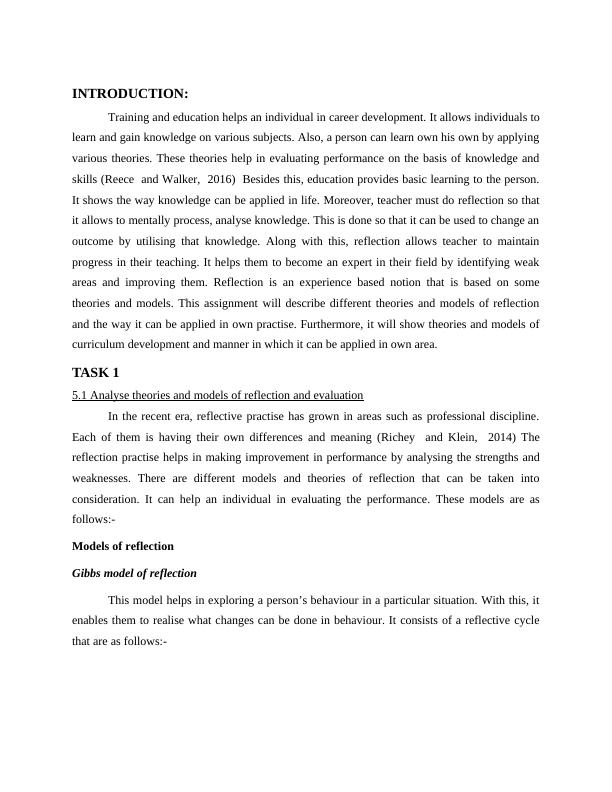
Step 1 description - This stage helps a person to describe a situation in detail. Thisshows several types of questions that which person was involved, what happened, whatothers did, what you did, etc. By doing this, it helps in providing a clear view of wholesituation. Step 2 feelings – This stage helps a person to express his or her feelings regarding thesituation. A person describes experience during particular situation (Fägerlind and Saha,2016). Several questions such as what other felt about situation, what you felt, etc. Step 3 Evaluation – This stage helps tutor to motivate person to evaluate the entiresituation. In this, tutor asks on what positive things happened, what was negative, etc. Bythis, teacher finds out the root cause of problem so that it can be solved. Step 4 conclusion- In this step, tutor develops conclusion to solve the problems. Itbecomes easy to find out solutions because root cause of problem has been already
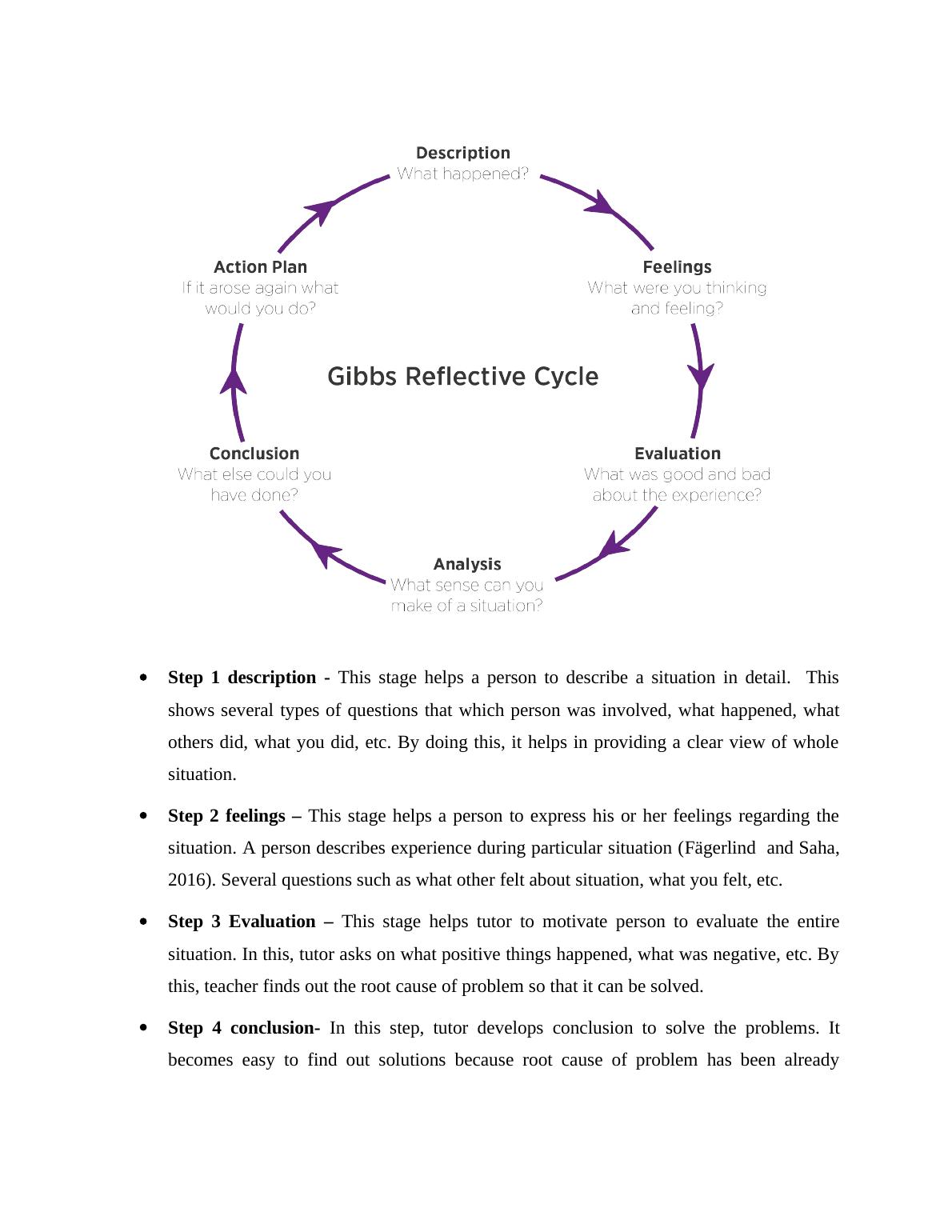
described above. A person can collect information about situation and use experience aswell as skills to solve the same.Step 5 action - This is the last step in which actions are taken to deal with similarproblems in future. Also, in this, weak areas are identified (Duncan and Goddard, 2016)Moreover, it helps in reviewing the progress of improvements in weak areas.Kolb’s model of reflection This model consists of four stages that is concerned with learner’s internal cognitiveprocess. Also, it focuses on developing the concepts that can be applied in different situations.The four stages are as follows:-
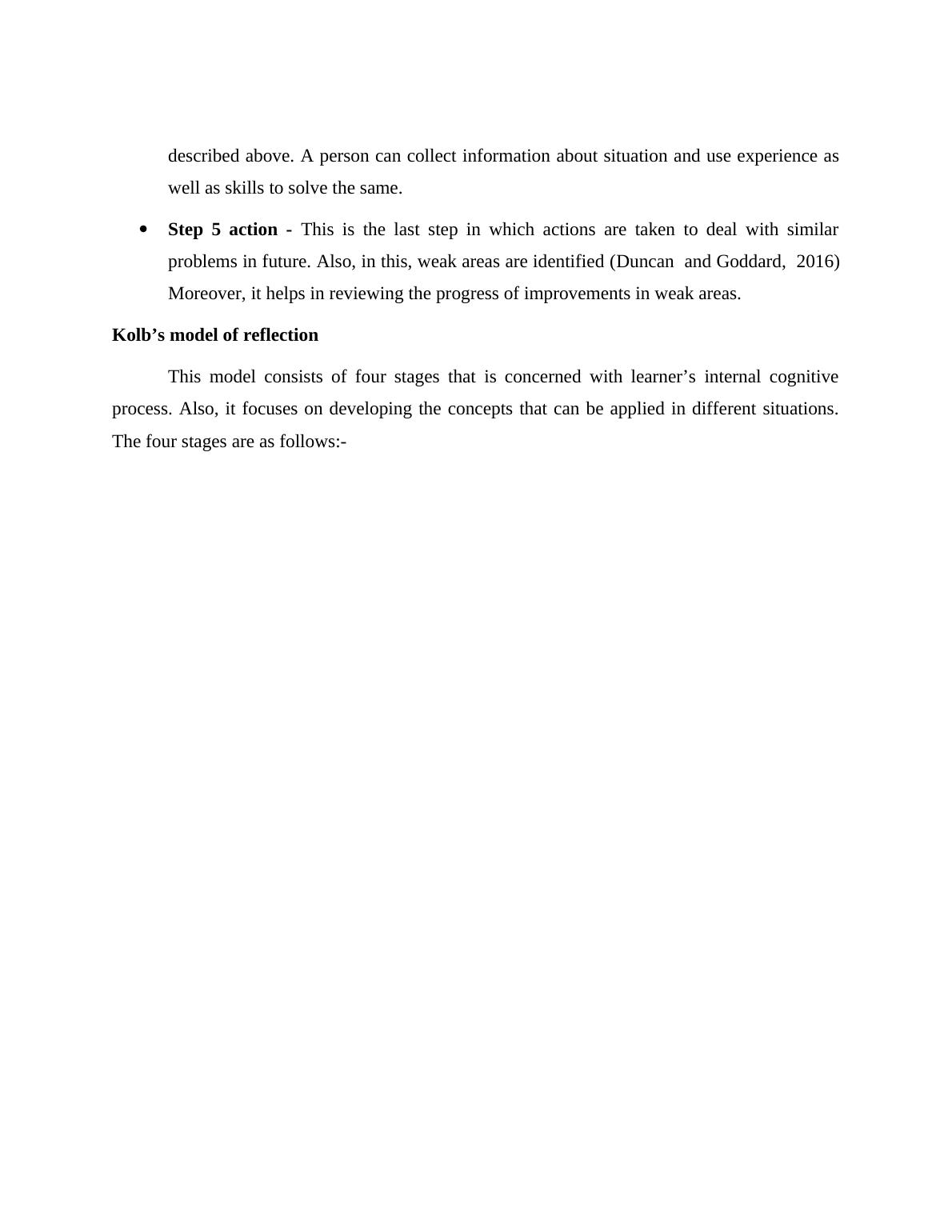

End of preview
Want to access all the pages? Upload your documents or become a member.
Related Documents
Theories Models and Principles in E&Tlg...
|25
|8358
|457
Unit 502: Theories, Principles and Models in Education and Traininglg...
|19
|6736
|471
Theories, Principles, and Models of Learning in Education and Traininglg...
|19
|6448
|30
Theories, Principles and Models for Inspirational Teaching and Learninglg...
|18
|4709
|297
Theories, Principles and Models in Education and Traininglg...
|18
|6809
|362
Unit 3 Theories Principles and Models in Education and Traininglg...
|15
|5720
|369
